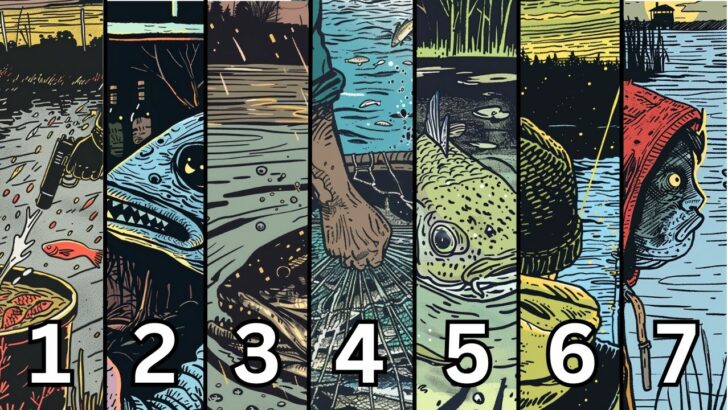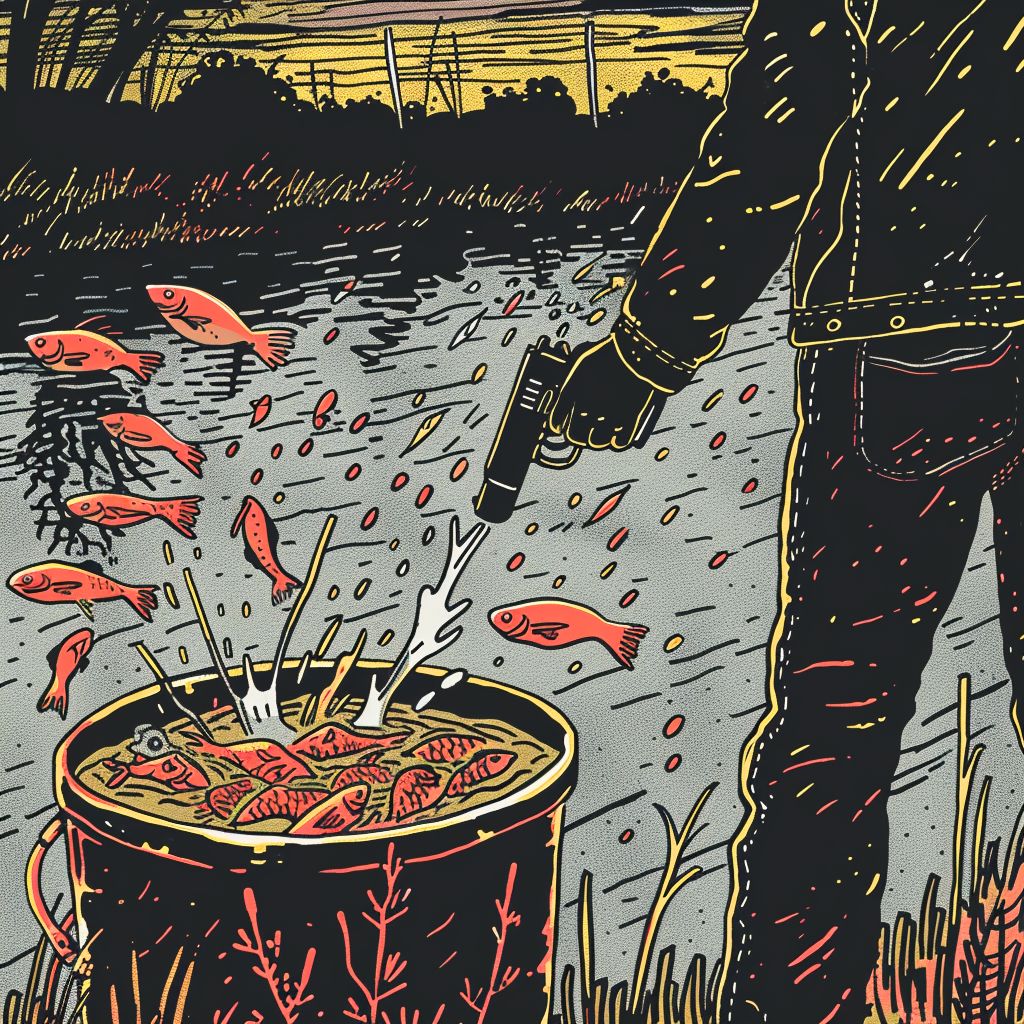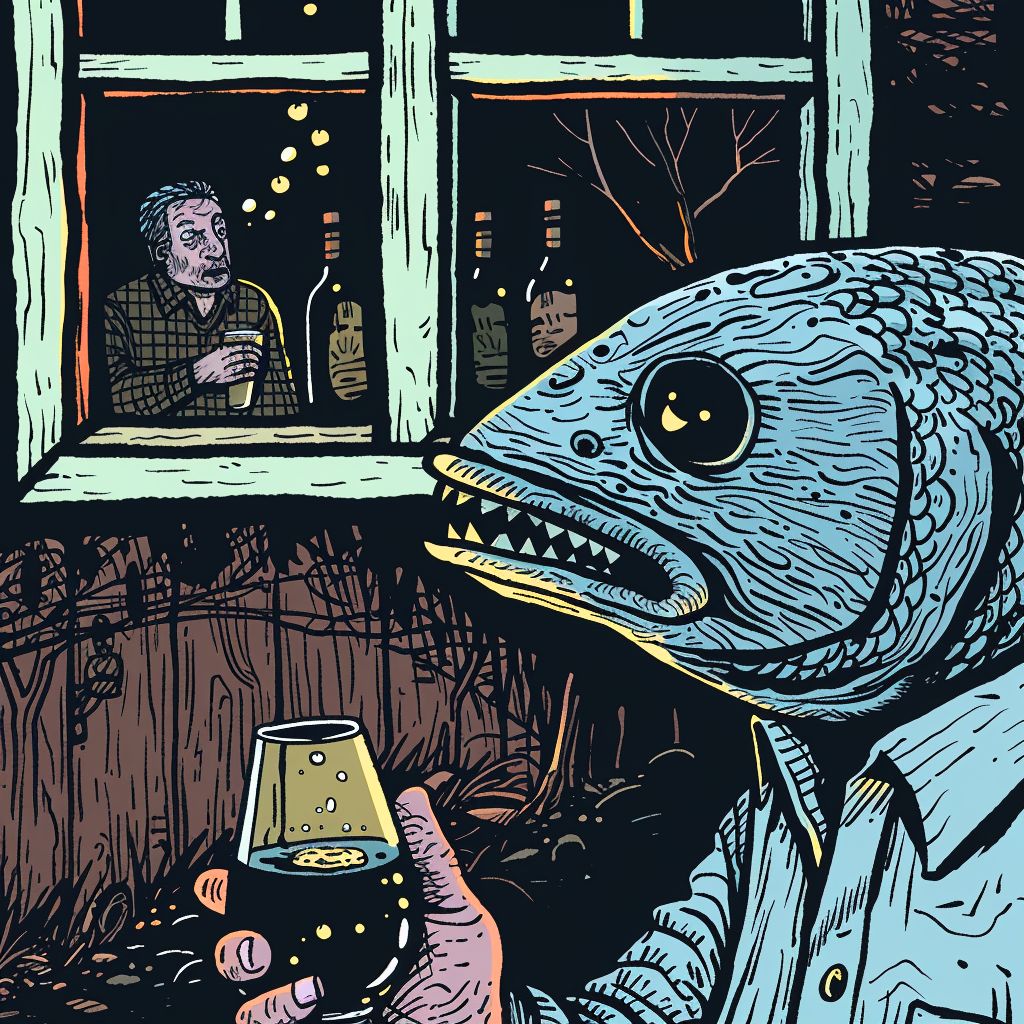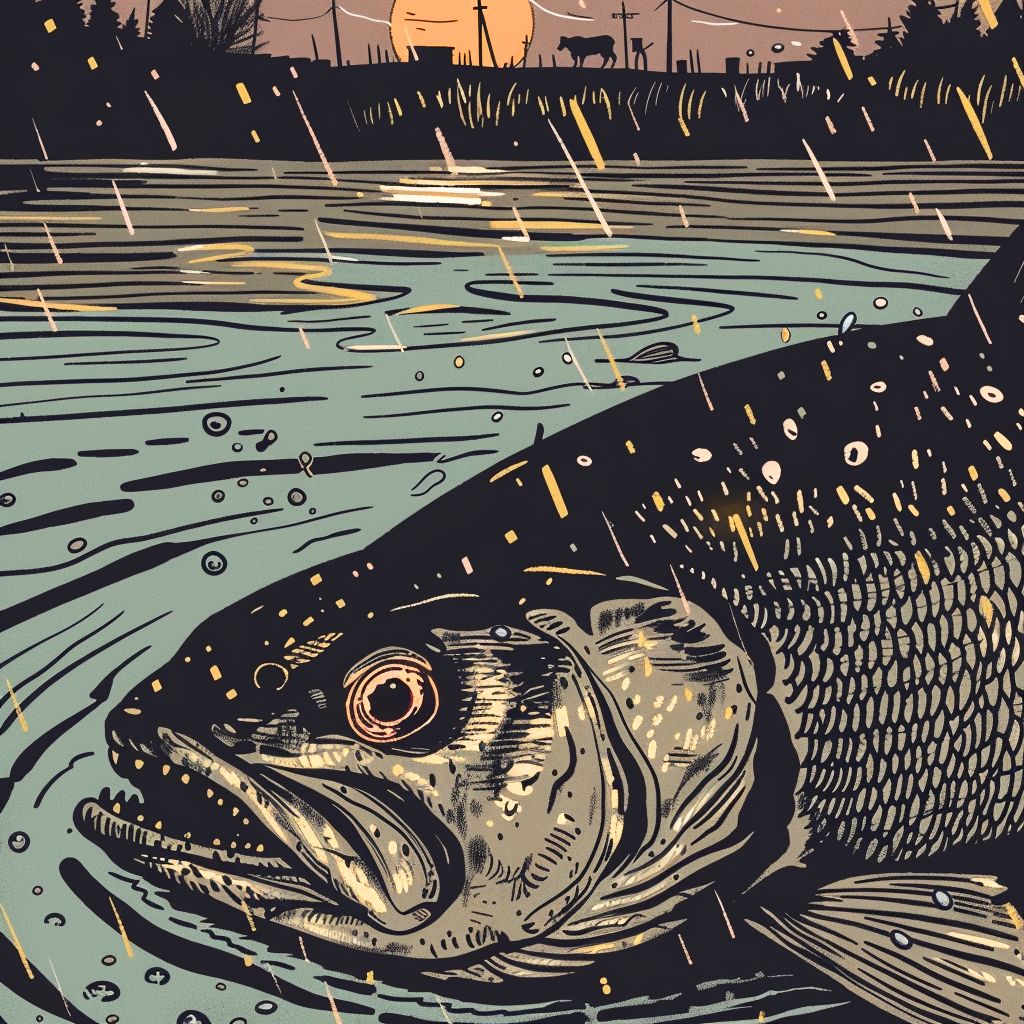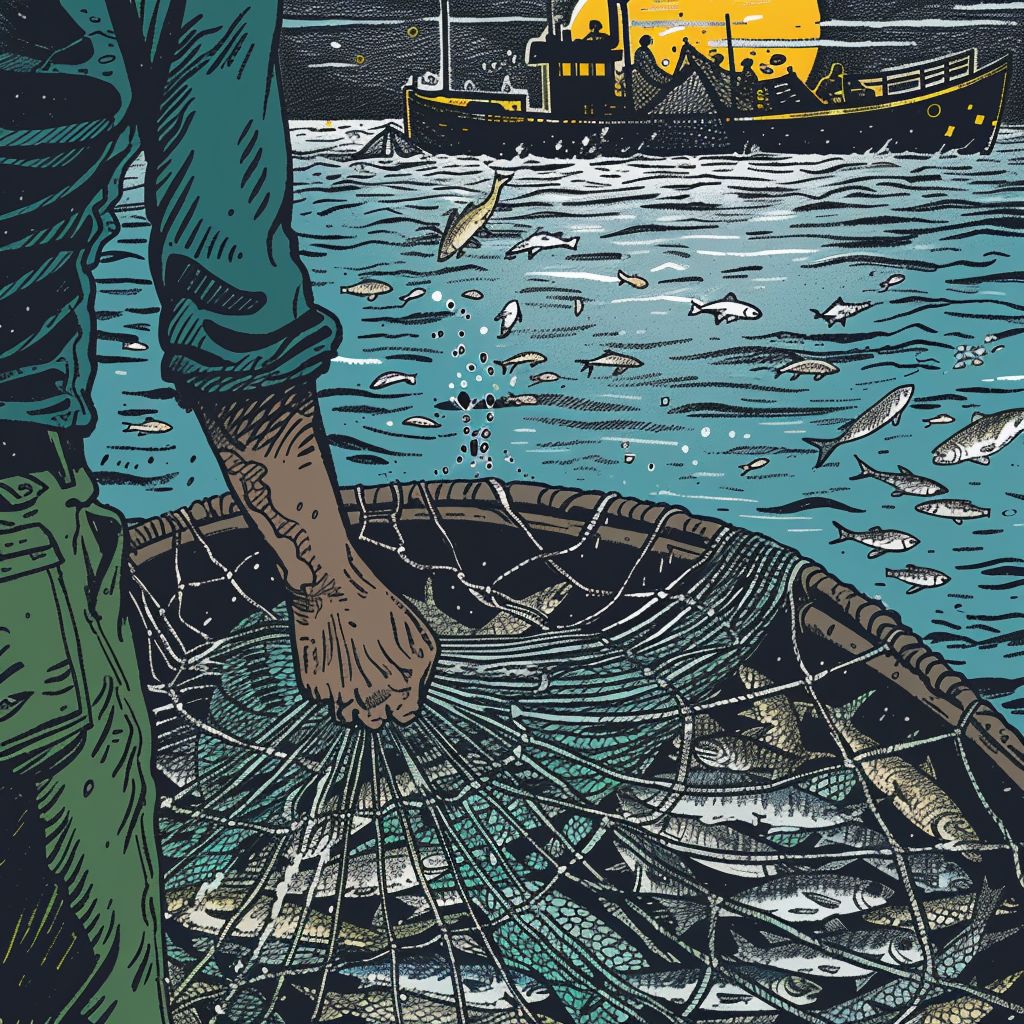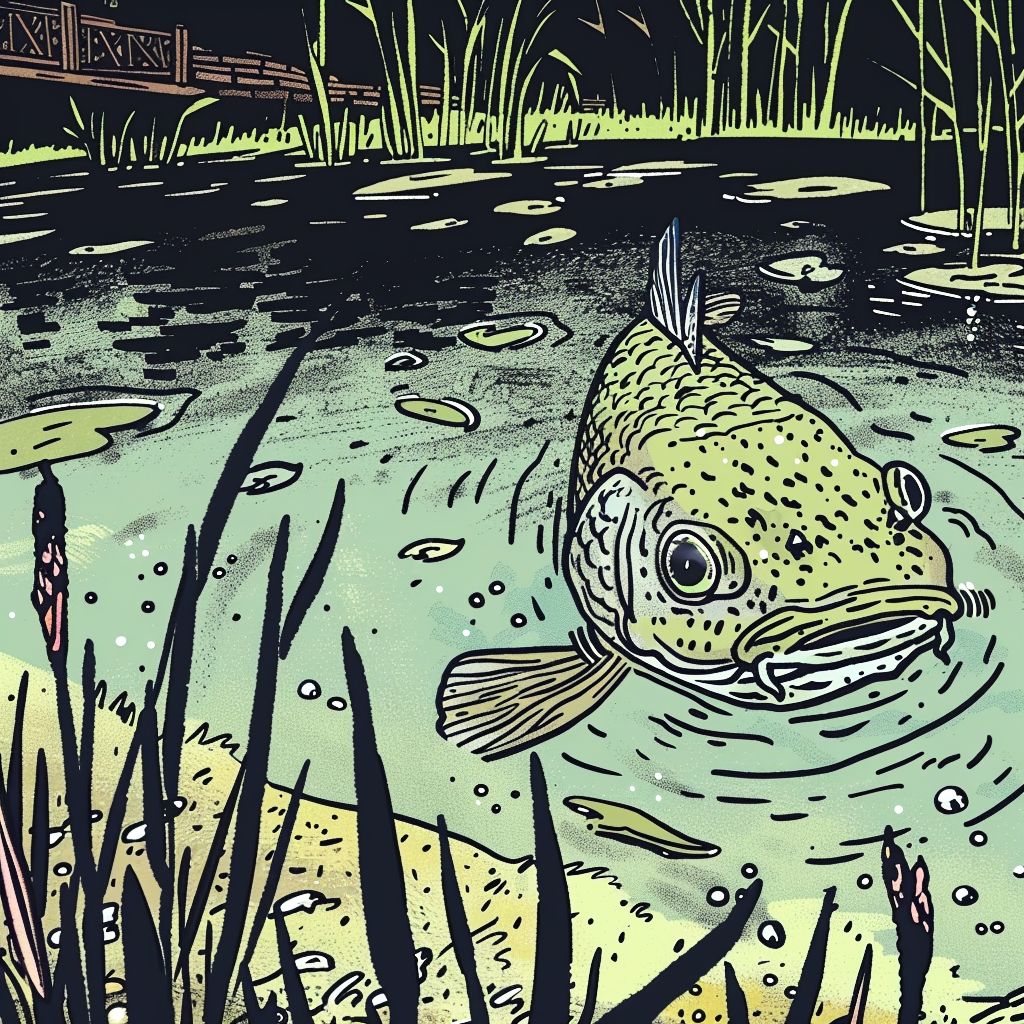Dive into the depths of language with “7 Fish Idioms You Should Know,” where we explore the fascinating ways in which aquatic life has infiltrated our everyday expressions.
These seven idioms, inspired by the behaviors and environments of fish, offer a glimpse into the fluidity and diversity of the English language.
From feeling out of place to seeking validation, each phrase captures the essence of human experiences through the lens of the underwater world.
Join us as we navigate these waters, uncovering the meaning and usage of each idiom with vivid examples.
Whether you’re angling for wisdom or just want to keep swimming in the sea of language, these fishy phrases will catch your interest.
1. Shooting fish in a barrel
“Shooting fish in a barrel” is an idiom that describes an action or task that’s extremely easy to accomplish due to the minimal effort required to succeed.
The imagery comes from the idea that if fish were trapped in a barrel, shooting into the barrel would almost guarantee a hit because of the confined space and the inability of the fish to escape, making the target much easier than if the fish were in a larger body of water.
The expression often highlights situations where success is almost certain or the challenge is minimal.
It suggests that the conditions make the task so straightforward that failing would be unlikely.
This idiom can apply to various contexts, from completing simple tasks to achieving goals in conditions that favor success.
- Example 1: Winning the debate against someone who hadn’t done their research was like shooting fish in a barrel.
- Example 2: With the latest technology at our disposal, finding the error in the code was like shooting fish in a barrel.
2. Drink like a fish
“Drink like a fish” is an idiom used to describe someone who consumes a large amount of liquid, especially alcohol, in a way that seems excessive or insatiable.
The comparison to a fish, which lives in water and is perceived to be constantly “drinking” its surrounding environment, emphasizes the extent of the person’s drinking habits.
This expression typically conveys a sense of astonishment or concern at the individual’s capacity for alcohol rather than admiration.
- Example 1: After he got the promotion, he went out to celebrate and drank like a fish all night.
- Example 2: She’s worried about her brother’s health; at every family gathering, he drinks like a fish.
3. Like a fish out of water
“Like a fish out of water” is an idiom used to describe someone who feels uncomfortable, out of place, or awkward in a particular situation or environment.
The imagery draws from the literal scenario of a fish being taken out of its natural aquatic environment, where it cannot breathe or function as usual, to illustrate the sense of not fitting in or struggling to adapt to unfamiliar circumstances.
- Example 1: On his first day at the new school, he felt like a fish out of water, unsure of where to sit or who to talk to during lunch.
- Example 2: Moving from a small town to a big city, she felt like a fish out of water, overwhelmed by the pace and the lifestyle changes.
4. All is fish that comes to the net
“All’s fish that comes to the net” is an idiom suggesting that everything acquired, regardless of its initial appearance or expected value, can be useful or beneficial.
The phrase draws from a fishing analogy, where any fish caught in a net is considered valuable, regardless of its type or size.
It emphasizes an opportunistic and inclusive approach to what life offers, suggesting that all opportunities, outcomes, or experiences can serve a purpose or provide a benefit, even if they’re not what was originally sought or expected.
- Example 1: The team didn’t get the client they were hoping for, but they ended up with two smaller clients instead. Well, all’s fish that comes to the net, and these new clients could open other doors.
- Example 2: She applied for several positions within the company and was offered a role she hadn’t considered. Remembe
5. Big fish in a small pond
“Big fish in a small pond” is an idiom that describes a person who is considered important or influential but only within a limited scope or small community.
It implies that while someone may hold significant status or recognition in a smaller context, their influence or importance might not extend as far in a larger setting.
The imagery suggests that a fish’s size is relative to the size of the pond it’s in; similarly, a person’s significance can depend heavily on their surrounding environment.
- Example 1: He was considered a star player in his high school basketball team, a big fish in a small pond, but he found the competition much tougher at the college level.
- Example 2: After years of being a big fish in a small pond at her local law firm, she moved to a major city to test her skills in a larger legal market.
6. To fish for compliments
“To fish for compliments” is an idiom that describes someone’s attempt to get others to praise or flatter them, often by being self-deprecating or indirectly seeking approval.
This expression likens the act of seeking compliments to fishing, where one puts out bait (in this case, remarks or actions) hoping to catch something desirable (compliments or positive attention). It suggests a certain level of insecurity or desire for validation from others.
- Example 1: By constantly downplaying her achievements, she seems to be fishing for compliments, hoping others will reassure her of her success.
- Example 2: He mentioned how poorly he thought he did on the presentation, clearly fishing for compliments, as he knew he had done well.
7. Neither fish nor fowl
“Neither fish nor fowl” is an idiom that describes someone or something that does not fit neatly into a specific category or group.
It refers to things that are difficult to classify or that straddle two or more categories without fully belonging to any of them.
The imagery suggests something that is not quite one thing (fish) nor another (fowl), highlighting ambiguity or a lack of clear identity.
- Example 1: His music is neither fish nor fowl—it’s not really jazz, but it’s not exactly rock either.
- Example 2: The new hybrid car model is neither fish nor fowl, combining elements of traditional gas engines with electric motors but not fitting squarely into either category.
The Catch of the Day: Wrapping Up Our Fish Idiom Journey!
As we conclude our dive into “7 Fish Idioms You Should Know,” we’ve seen how the sea’s inhabitants inspire expressions that vividly capture life’s ebb and flow.
From navigating unfamiliar situations to pursuing praise, these idioms enrich our language with the essence of aquatic life.
Thanks for joining this exploration of how fish-themed phrases enhance our conversations. Remember these idiomatic treasures as you continue navigating the vast ocean of English. May they remind you of the depth and diversity of expression waiting to be discovered. Here’s to more linguistic adventures on the horizon!

Hey fellow Linguaholics! It’s me, Marcel. I am the proud owner of linguaholic.com. Languages have always been my passion and I have studied Linguistics, Computational Linguistics and Sinology at the University of Zurich. It is my utmost pleasure to share with all of you guys what I know about languages and linguistics in general.

